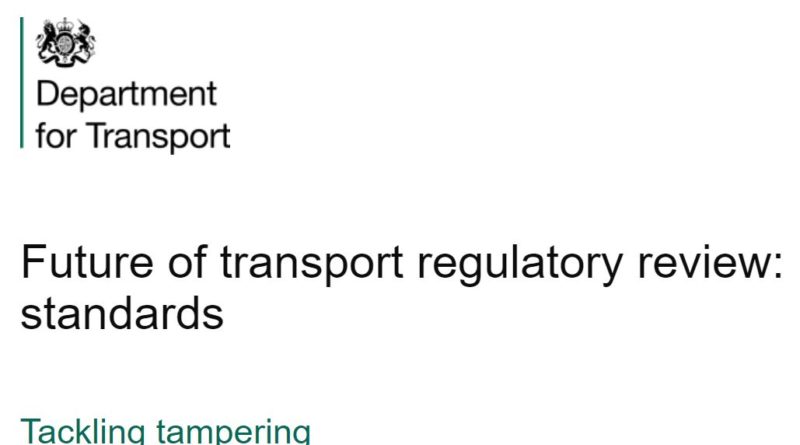Transport regulatory review proposes new offences on vehicle tampering
A Government consultation titled Future of transport regulatory review: modernising vehicle standards is consulting on a range of possible frameworks for modern vehicle innovation, at the same time addressing the controversial issue of vehicle tampering.
“We will create new offences for tampering with a system, part or component of a vehicle intended or adapted to be used on a road. This will enable us to address existing gaps in the legislation, ensuring cleaner and safer vehicles,” starts the segment directly addressing tampering of road-suited vehicles, such as electric bikes.
That strongly suggests that moving forwards it is the Department for Transport’s intention to bring in firmer legislation specifically addressing the modification issue that has recently been causing a stir in the bicycle industry. Tampering and even the call for higher standard speeds is deemed by many as a threat to the electric bike’s current regulatory status. In the UK the Bicycle Association is a signatory of the trade pledge to monitor and self-regulate the issue.
As it stands, fitting a dongle or otherwise adjusting an electric bike is a type approval offence, in particular if a change of vehicle type is not registered. It is ill-advised for a cycle store or mechanic to get involved with customers asking for products or services in this area as they will not necessarily be certified, nor insured, to handle what will essential become a moped in regulatory terms. It is, however, possible to sell unadjusted speed pedelecs with the right registrations, insurances and equipment in place. Some cycling distributors are now selling these to bike shops and offering services to assist with promoting legal use.
The new proposals float the idea that a specific offence will be created to punish those supplying, installing or even advertising services or equipment that could lead to vehicles falling outside of current regulatory frameworks. Likewise, removing the “effectiveness” of a manufacturer fitted system would become an offence.
“We need the requirements and powers to be wider than those in the Road Traffic Act 1988 to reflect the rapidly developing technological landscape which was not envisaged when the legislation was enacted,” says the proposal introduction.
Alongside the aforementioned adjustments comes a suggested new power to bind suppliers to provide information if their goods have any means to enable tampering that they are aware of. Such suppliers would need to reveal the quantities sold or modified.
The consultation proceeds to call for industry knowledge on whether any exemptions should be permitted, detail on how products or trade might be inadvertently be affected by legislative changes and which services may also stand to lose out. Finally, a call for whether such adaptations would prove excessively costly to business is questioned.
If passed into law the Secretary of State for Transport would have the powers to require a manufacturer or supplier to issue a recall and removal from sale on products deemed to be in breach of future regulations, potentially affecting numerous products already in the marketplace.
“The manufacturer would be required to achieve a minimum recall rate in respect of any unsafe vehicles or components. They might also be required to compensate vehicle owners,” adds the text, threatening civil penalties.
The transport review proposal in full can be found here.



